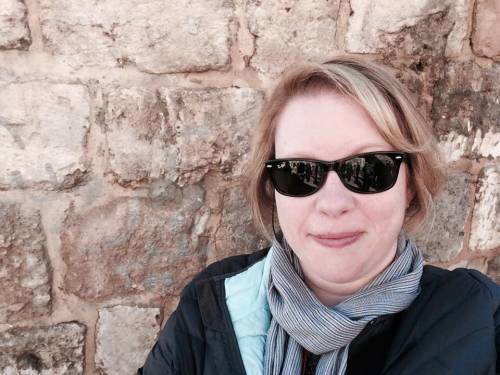Trusting in resurrection
Accomplishing more together
By Sarah Robbins
“My first call was not what I had imagined– and what a relief that turned out to be.”
This is pretty close to the phrasing that I hear most pastors say when describing the beginning of their work as Ministers of Word and Sacrament – for good reason.
My first call was not what I had imagined, either.
During our seminary years, we gather up in our heads exactly what we hope our first call will be like. We spend the first few months adjusting to the whirlwind rhythm of ministry and then the next year or so trying to wrap our minds around the fact that God has called us to a relentless roller coaster ride.
When we can finally pause and reflect on the bigger picture of how our expectations and our imaginations compare with reality – it can often either be a TBTG (thanks be to God) moment, or one that is filled with confusion and grief.
I learned more than I could have ever imagined in my first call. For me it was a mixture of TBTG and confusion/grief. In the span of four years, the congregation I served had to make serious decisions about the future of the church.
To make a long story short, the building was sold, a move was made and a merger was completed. And through it all, there were folks who walked with me as colleagues and friends. Folks I could not have survived without. Each month I shared with them a bit about what I was learning, sometimes learning the easy way, but most often learning the hard way.
One of the difficult things to learn was that the beautiful property would not save us. The location, size, and condition of a building weren’t enough to maintain a faithful presence in the neighborhood. The congregation I served had everything going for it–from the outside. It was located in a growing neighborhood, it was in a visible spot on a highly trafficked street and was appealing physically. But, the congregation inside was no longer a proper match for the ministry that the community needed.
The other hard realization for the congregation was that I wouldn’t be the one to save the church. From the moment the congregation and I said yes to one another, I knew I was in over my head. The tasks before us were daunting and it would have been much easier if we had just tried to maintain what they were doing.
But I discovered that I couldn’t save them and they couldn’t save me. Regardless of how hard we worked, it became clear through prayer, worship and discussion that a whole new direction was required.
Too often we think that a pastor, one singular person, can save a declining church. Congregations call a pastor who is young, has a family, and expect him or her to work more than 50 hours a week to steer a church away from decline or closure. It may be the pastor’s first call and everyone hopes that all that energy, intelligence, imagination and love will light a spark, and get things back to where they used to be. But I learned that what we needed to discover was not how to save what was there, but how to discern what really needed to be saved.
We maintain the belief, even though it is contrary to scripture, that the end of a congregation is the worst thing that can happen. We equate the end with death and failure. Scripture tells us time and again that death makes way for resurrection into something new.
This was one of the hardest things I learned and am still learning. Frankly, it took constant reminders to myself and those around me that ending a ministry in one location, selling the building and merging with a congregation that was down the street was not failure. The ability of the congregation to serve that neighborhood had ended, and through long and careful discernment a majority of the congregation voted to take its resources and further its legacy with a fellow congregation.
And so we went together.
Through the support of colleagues and friends, I discovered that Christ never calls us to do resurrection work on our own. Leaving our building and merging with another congregation was an act of faith. We didn’t save everything, but discovered what really needed to be saved was our ability to say “Yes” to the resurrection and new life Christ was offering us.
Reverend Sarah Robbins recently served as Associate Pastor of Wallace Memorial Church in Pittsburgh and led the former Dormont Presbyterian Church through a season of discernment that resulted in the sale of their historic building, nesting with a neighboring congregation, and merger with Wallace Memorial. She serves on Commission On Ministry for Pittsburgh Presbytery and is a leader of the Unglued Church Project.